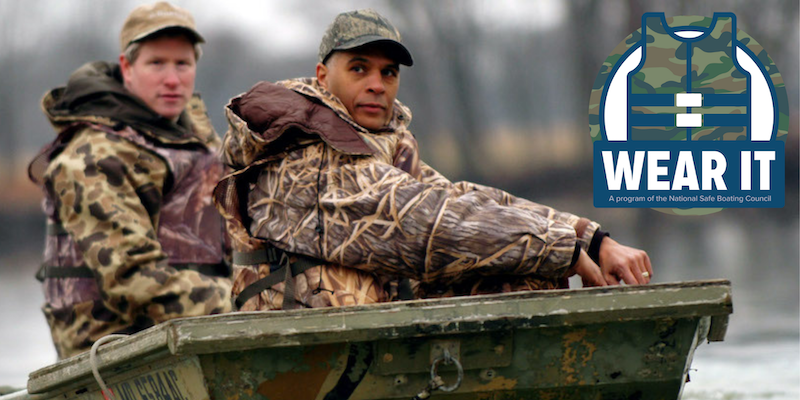
Cold-water immersion is the cause of many boating-related fatalities. The danger increases as water temperature decreases below normal body temperature (98.6° F).
Dos and Don’ts of Cold Water Boating
• Do make sure everyone is wearing a life jacket. Even experienced swimmers will experience shock within one minute in the frigid water and lose muscle control within 10 minutes.
• Do file a float plan with someone you trust that includes details about the trip, boat, persons, towing or trailer vehicle, communication equipment and emergency contacts. Download a free float plan template at www.floatplancentral.org.
• Do dress properly for the weather, always wear layers, and bring an extra set of clothes in case you get wet. Remember, dress for the water temperature, not the air temperature.
• Do use your navigation lights to alert other boaters of your presence in dark and/or foggy conditions. Recreational boats operating at night are required to display navigation lights between sunset and sunrise.
• Do catch your breath. A sudden, unexpected fall into cold water causes an involuntary gasp (or torso) reflex. It takes less than one-half cup of water in your lungs to drown. If you remain calm, you have a greater chance of self-rescue.
• Don’t panic if you fall into the water. Stay afloat with the help of your life jacket, regain control of your breathing and keep your head above water in vision of rescuers.
• Don’t keep heavy boots on if you’re in the water. Look for ways to increase your buoyancy. If you’re in the water with others, huddle together with everyone facing inward to help everyone stay afloat and keep warm.
• Don’t apply heat to extremities like arms and legs of a rescued victim. This sudden change in temperature could cause cardiac arrest.
Stages of Cold-Water Immersion
• Cold shock. You have one minute to adjust to the cold shock response – don’t panic.
• Swimming failure. You have 10 minutes of meaningful movement to get help and get out of the water.
• Hypothermia. You have about one hour before you become unconscious from hypothermia.
• Post-rescue collapse. You “give up” and collapse after or right at the time of rescue.





